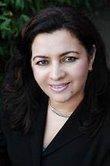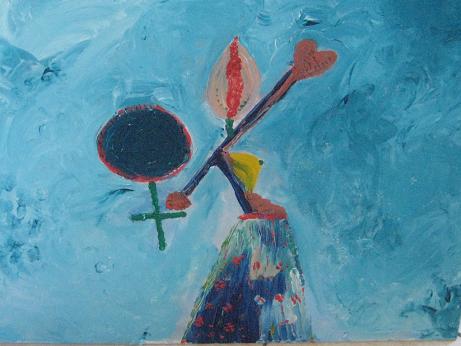 As a reader of poetry you always find poets that you can emotionally connect with and feel a specific excitement reading the feelings the poets put down on paper.
As a reader of poetry you always find poets that you can emotionally connect with and feel a specific excitement reading the feelings the poets put down on paper.
…
Poem: Your Shoulders Hold Up the World from the collection Looking for Poetry
Translated by Mark Strand
“YOUR SHOULDERS HOLD UP THE WORLD
—Carlos Drummond de Andrade
A time comes when you no longer can say: my God.
A time of total cleaning up.
A time when you no longer can say: my love.
Because love proved useless.
And the eyes don’t cry.
And the hands do only rough work.
And the heart is dry.
Women knock at your door in vain, you won’t open.
You remain alone, the light turned off,
and your enormous eyes shine in the dark.
It is obvious you no longer know how to suffer.
And you want nothing from your friends.
Who cares if old age comes, what is old age?
Your shoulders are holding up the world
and it’s lighter than a child’s hand.
Wars, famine, family fights inside buildings
prove only that life goes on
and not everybody has freed himself yet.
Some (the delicate ones) judging the spectacle cruel
will prefer to die.
A time comes when death doesn’t help.
A time comes when life is an order.
Just life, without any escapes.”
As a reader of poetry you always find poets that you can emotionally connect with and feel a specific excitement reading the feelings the poets put down on paper. For many years I read poems by Carlos Drummond de Andrade, the Brazilian national poet. I loved those poems so much. I spent a great deal of time translating them into the Persian language. One of those poems is Your Shoulders Hold up the World. To begin with, just the name intrigues my imagination, conjuring images of the strength that could be possible to carry all heavy problems on human shoulders. The poem starts with a strong, shocking line,
“A time comes when you no longer can say; my God.”
The excitement of the first line is continued with an even more shocking next line,
“A time when you no longer can say: my love. Because love proved useless. And the eyes don’t cry.”
At this point the reader can think of no other words to use to convey such an immense pain in the human heart, but the poet writes:
“The heart is dry.”
By saying this line he means to convey disappointment, difficulties, numbness, lack of desire, lack of friendship, lack of wanting, and the list in your head goes on. Even by now, having gone through the first stanza of this poem, I feel satisfied that indeed this is an exciting poem, and I wait to see what the next two stanzas will bring. His use of metaphor is so artistic that you decide to trust whatever Carlos says and stay out of any arguments with him. He uses the word “world” in this poem as a metaphor for the heavy burdens that come with human life which build and grow larger over time. The word “world” can be interpreted as personal problems or universal human problems. His use of “shoulder” in this poem refers to the human’s ability and strength to handle the burdens. Then Carlos quantifies this human ability and strength through the use of simile; all the difficulties weigh only as much as a child’s hand on a shoulder.
“Your shoulders are holding up the world and it’s lighter than a child’s hand.”
Carlos indirectly tells us of the human problems such as depression, loneliness and human conflict.
“Women knock at your door in vain, you won’t open. You remain alone, the light turned off, and your enormous eyes shine in the dark.”
When he says you won’t open the door, it tells us he is unable to emotionally open the door although he is in the house gloomy and alone. The use of “you won’t open” is a way to refer to a feeling of depression more than anything, or getting used to one’s loneliness. Or even it is a reference to one’s decision to stay away from others due to many reasons, one being the fact human beings habitually harm each other. We readers even get the sense that he is referring to tensions between men and women by the use of the term “women”. These tensions seem to cause suffering when he says,
“It is obvious you no longer know how to suffer.”
With this line he admits that there is undeniable suffering in life. He then tells us that suffering requires some skill and in this case he has lost that skill.
This poem then asks the reader to philosophize about life by asking,
“Who cares if old age comes, what is old age?”
I completely agree with Carlos. What is old age? The answer for me is as long as I am alive, I am young and when I die, I am old. People take up a lot of time in life thinking about old age and aging. But we have to ask ourselves, when exactly does old age start? Where is the borderline between youth and old age? Isn’t that in a person’s mind and a certain way of life? Carlos is right, who cares if and when old age comes. Because according to Carlos, your strong shoulders should assume the world and the
world’s problems should weigh as much as a child’s hand. This also gives us perspective on the poet’s view of the human ability to handle crisis. Carlos continues by reminding us that all the problems of human stupidity like wars and fights will be present forever, because it has been for centuries and human beings have not freed themselves from it, and will likely not.
“Wars, famine, family fights inside buildings prove only that life goes on and not everybody has freed himself yet.”
Carlos ends the poem with a huge disappointing thought that human problems are so enormous that even in death some of your problems will continue.
“A time comes when death doesn’t help. A time comes when life is an order. Just life, without any escape.”
It is clear that the poet of these lines is disappointed with human wrong doing, and his philosophical mind beautifully explains the misery of life. There is no escape and there are times when living is an order and not a choice that we can make.
Mahnaz Badihian
www.mahmag.org
 A Salute to the People of the Nile
A Salute to the People of the Nile



